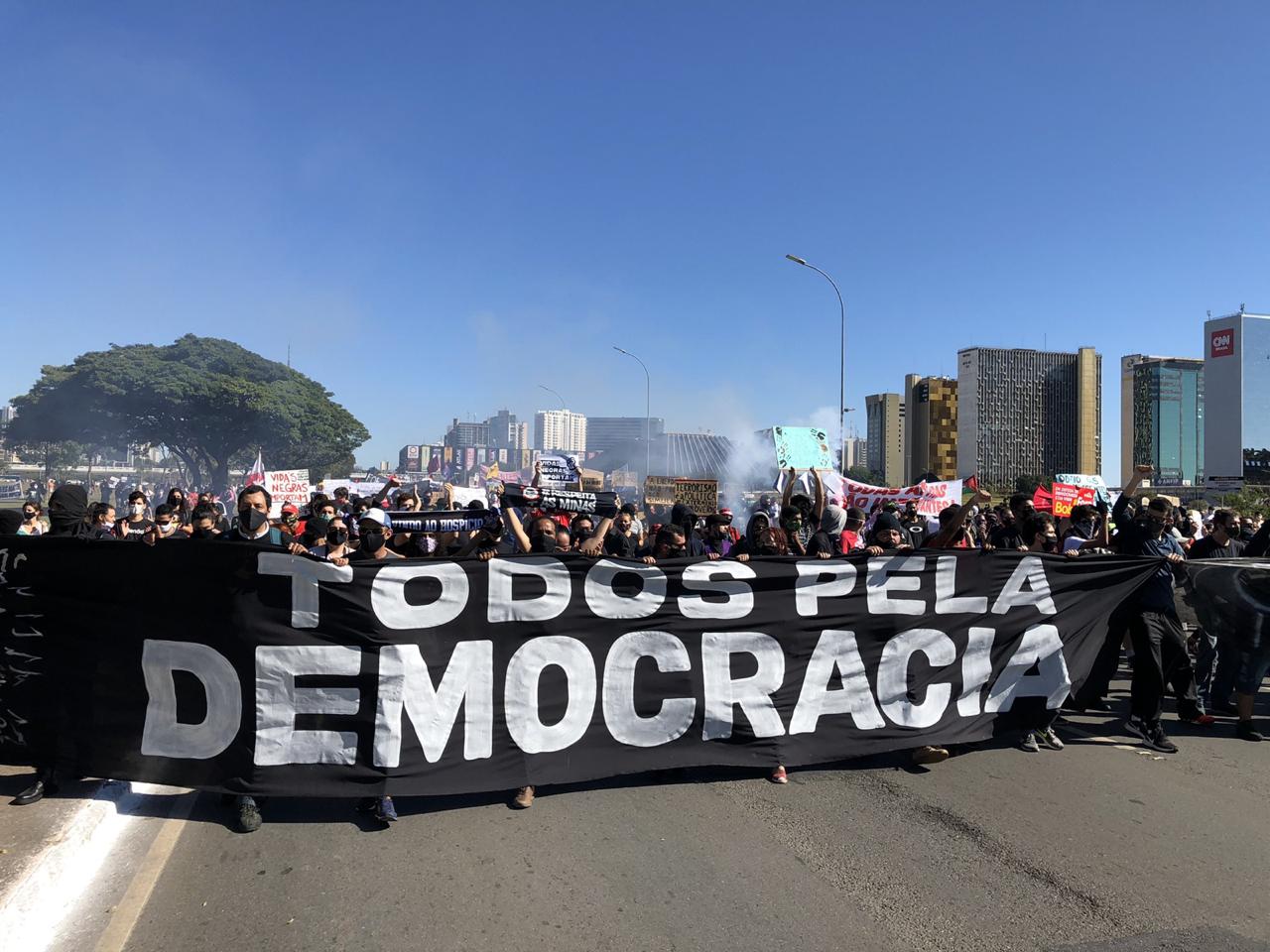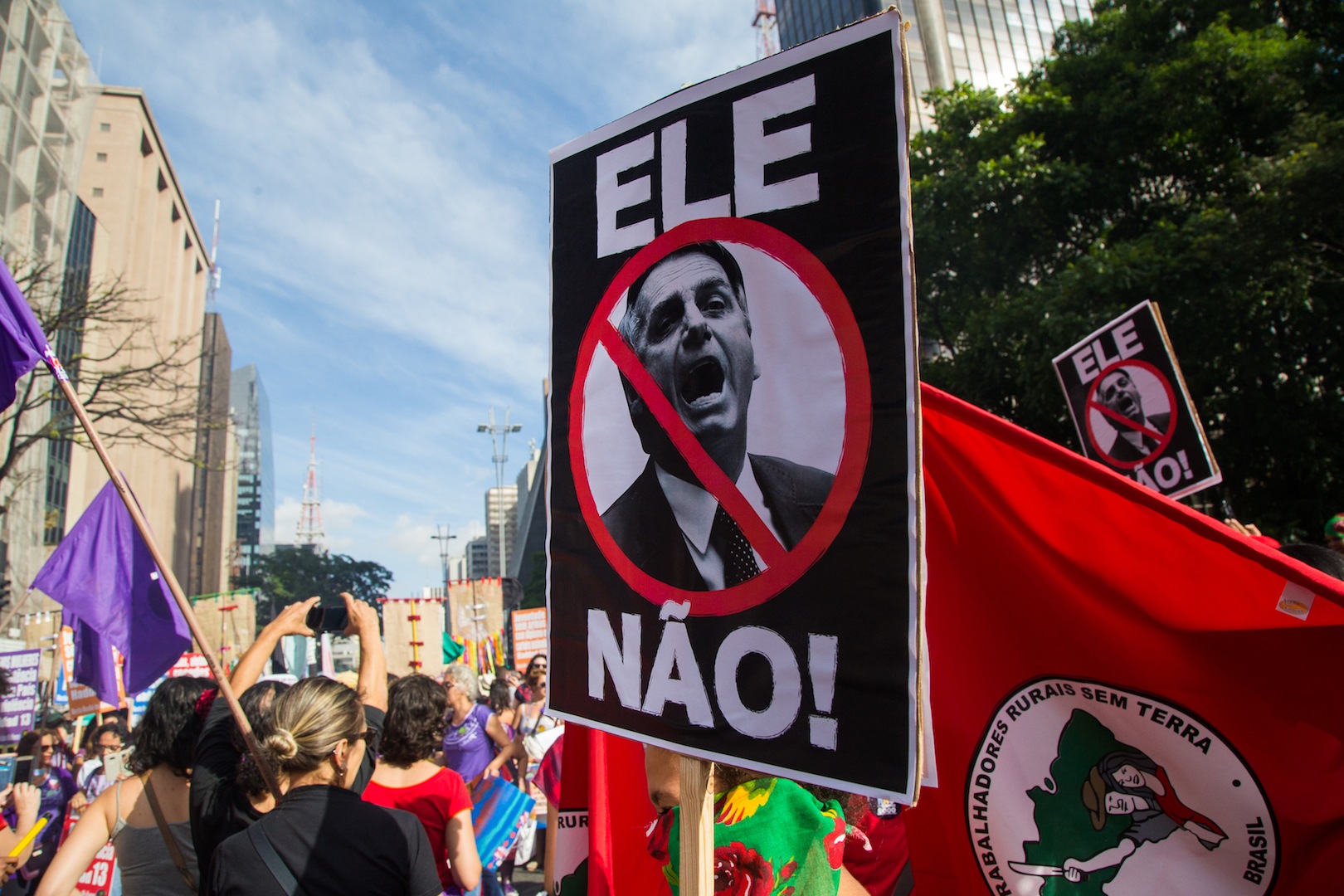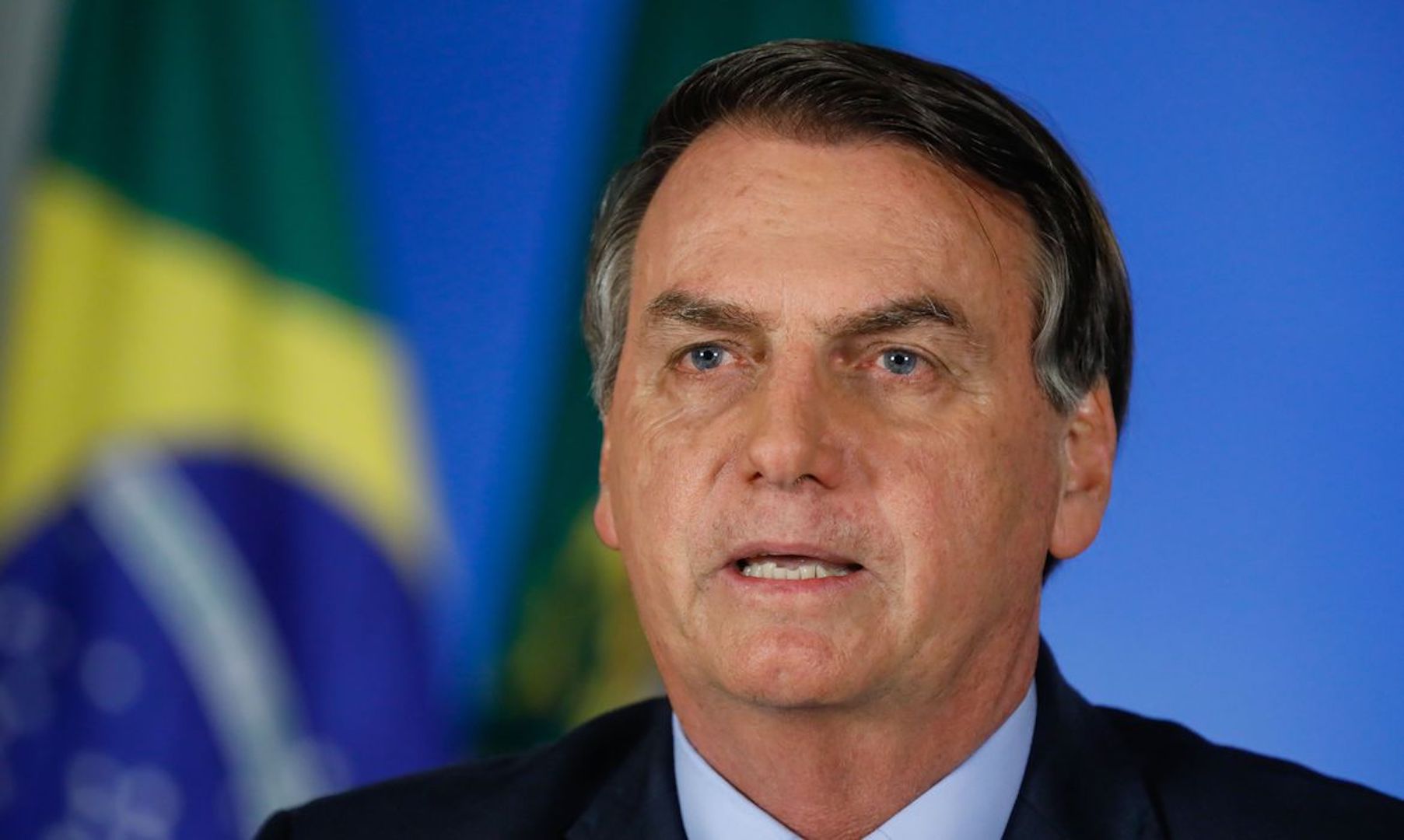SÃO PAULO, BRAZIL – In the past ten days at least three supra-partisan social movements were created in Brazil to protect what they claim is the country’s apparently shaky democracy. But the refusal of key left- and right-wing players to join in, and the lack of a single objective to fight, may have weakened the movements even before they took off.

“They may have jumped the gun,” says Marcelo Castañeda, professor of organizational studies at the Federal University of Rio de Janeiro (UFRJ), of groups like #EstamosJuntos and #Somos70porcento.
“At the very least, they were swallowed up by the events of last week,” notes the professor, citing the worldwide debates that focused on racism after the death of George Floyd in the United States, as well as the death of a young boy in Brazil due to negligence.
Castañeda says that he, himself, signed up for one of the groups and was given a WhatsApp group number. “I was disappointed. I was expecting more discussions and debates about democracy, but all they (movement) provided were photos and a video,” he told The Rio Times.
Inspired by the “Diretas Já” (Elections Now) movement of 1984, these coalitions seek to unite political opponents for a single cause: democracy.
The largest of the groups, #EstamosJuntos (We’re Together) advocates the defense of life, freedom and democracy. Its manifesto has been signed by thousands of Brazilians, from former President Fernando Henrique Cardoso to writer Paulo Coelho; from Cardinal Odilio Scherer of the Sao Paulo Archdiocese to porn star-turned-politician Alexandre Frota.
“It is time to put aside old disputes in search of the common good. Left, center and right united to defend law, order, politics, ethics, families, voting, science, truth, respect and appreciation of diversity, freedom of the press, the importance of art, the preservation of the environment and responsibility in the economy,” says the manifest.
The movement #Somos70porcento (We’re the 70%) was started by economist Eduardo Moreira, as a hashtag on Twitter. Moreira wanted to show that Jair Bolsonaro’s supporters are a minority, using as a reference a survey by the Datafolha Institute, which showed that 70 percent consider the President “terrible, bad or average”.

“We are part of the 70 percent that defends democracy. We are 70 percent who fight for less weaponry, for less death, for more love and tolerance!” says the movement’s website. Although the movement brings together some politicians, it has attracted more celebrities and influencers who are not usually participants in political debates, like TV presenter Xuxa.
Lawyers, judges and other members from the judicial system created another group, dubbed “Basta” (Enough). They demand respect for the Constitution and the governmental institutions. The group brings together former Justice Ministers, like José Eduardo Cardozo and José Carlos Dias, respected lawyers, as well as putting side-by-side prosecutors of the Lava Jato corruption scandal and some attorneys who defended those accused.
“Brazil, its institutions, its people cannot continue to be attacked by someone who, democratically elected to the post of President of the Republic, exercises the mandate given to him to undermine the foundations of our democratic system,” says the group website.
But the refusal of key political figures to sign on to the cause, in addition to the lack of specific proposals, may lead these groups not to obtain the support they need to pressure the government to change its course.
Former President Luiz Inacio Lula da Silva was the first to refuse to adhere to any of the movements, stating that he would not join those who fought for the impeachment of his protégée, former president Dilma Rousseff, and those who defend the ousting of President Bolsonaro but agree to maintain Minister Paulo Guedes’ economic reforms.
A prominant right-wing politician and former Bolsonaro supporter, Janaina Paschoal, also says she has her reasons for not signing these movements’ manifests. “I will not sign. I think the movements are hasty and disproportionate,” says Paschoal, one of the persons responsible for bringing impeachment charges against Rousseff.

Renan Santos, coordinator of MBL (Brazil Free Movement), a right wing group which also played an important role in Rousseff’s removal from office, says he will not be part of movements that may have other objectives than opposing the president.
“We are willing to work together against Bolsonaro, we just don’t want to join without knowing who is behind it. In politics, not everything is as it seems,” he told reporters.
Like ex-president Lula, both Paschoal and Santos say they want the president to leave, but neither seem to be willing to stand side-by-side with those who diverge from them on other issues.
The absence of key political figures such as these has led some Brazilians to delay or even abstain from signing up. The movement #EstamosJuntos, for example, received over 210,000 signatures in the first three days after the release of its ‘manifest’ (May 30th-June1st), but has not been able to maintain the rhythm of a campaign. By Tuesday (June 9th) the movement had added only 70,000 signatures to the initial campaign, now totaling 280,000.
“I heard of a few politicians who stated they wished they hadn’t signed it (manifest) and one who even asked to be taken off the list,” says Castañeda.
The UFRJ professor explains he does not blame those who are having second thoughts. He believes that if no tangible, clear engagement is announced soon, the movements may fizzle out before they have a chance to take off.
“What concrete actions are the movements proposing? If that is not clear, why launch the movements now?” concludes Castañeda.

